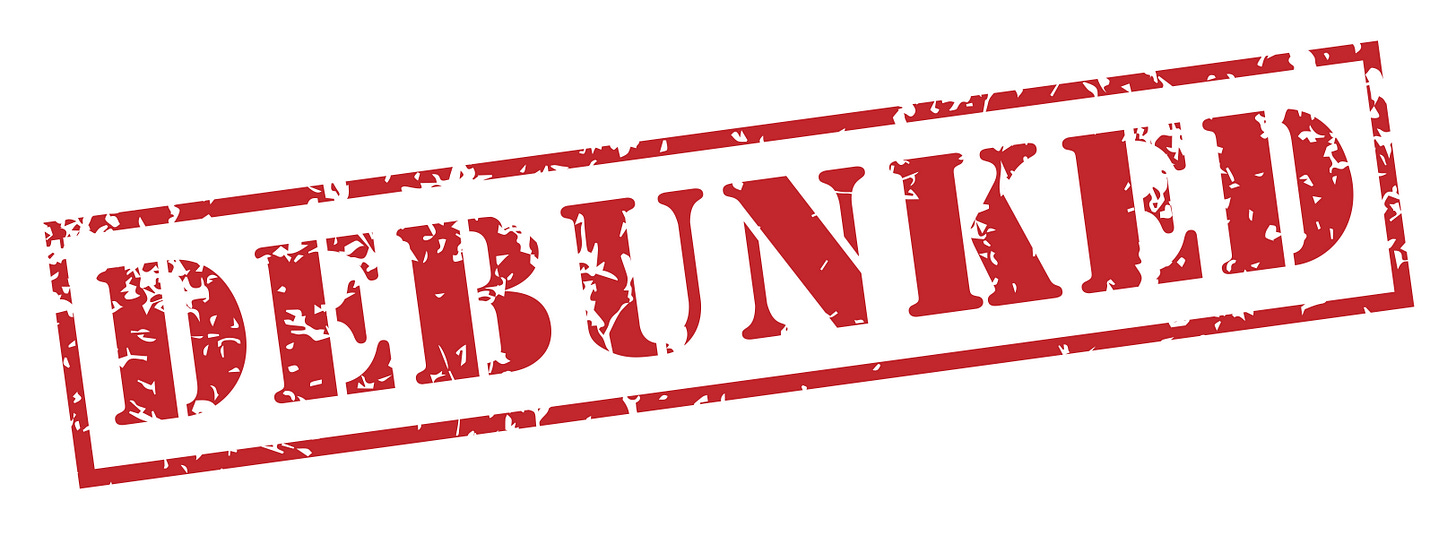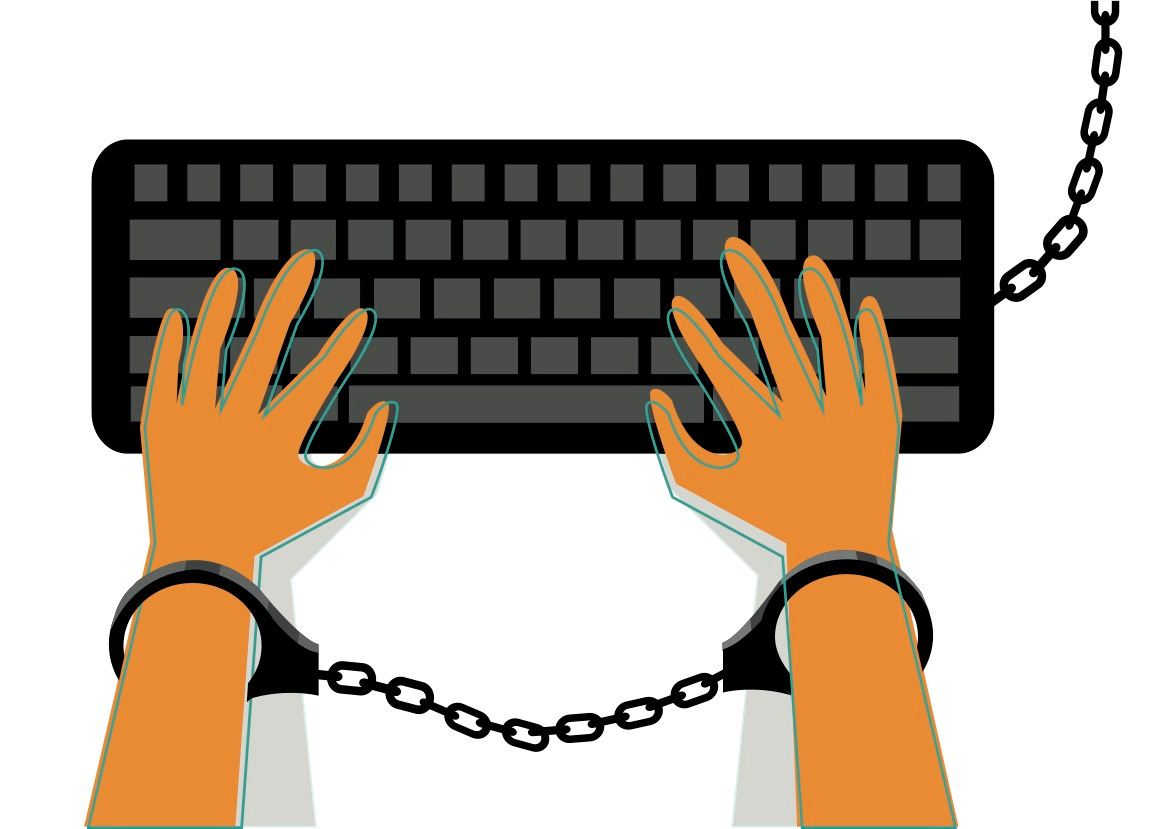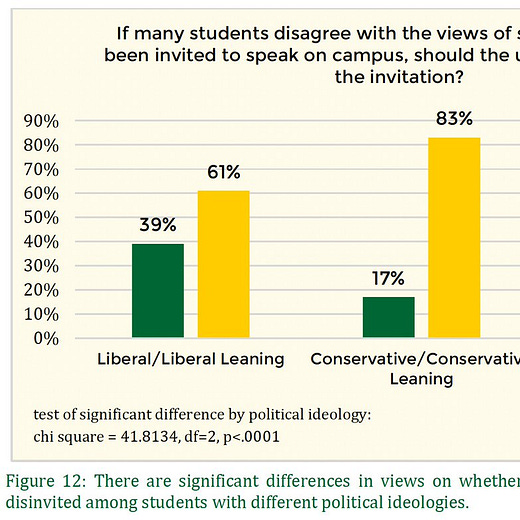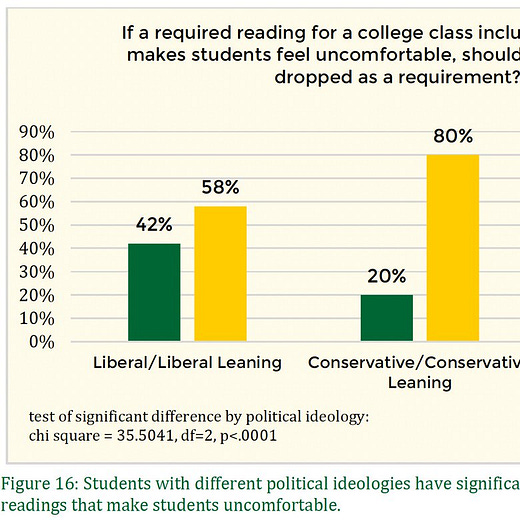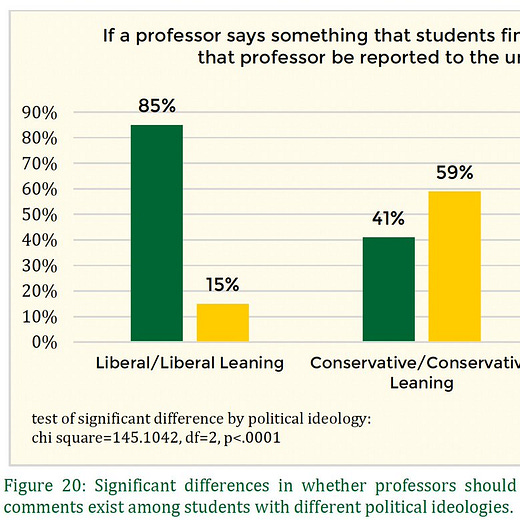E-Pluribus | June 17, 2021
When "debunked" doesn't really mean debunked, the PRO-SPEECH Act is anything but, and how academic group statements can harm individual academic freedom.
A round up of the latest and best writing and musings on the rise of illiberalism in the public discourse:
Michael Tracey: When Journalists Declare In Unison That Something Has Been Debunked, Assume The Opposite Is True
The recent saga of the COVID-19 lab leak theory is just one example Michael Tracey uses in this recent post about the herd mentality that sometimes drives a media narrative to dismiss stories on the basis of “debunking.” But as Tracey illustrates, the dismissal of what would be otherwise legitimate stories for ideological reasons should be unacceptable in a free and fair press environment.
The word “debunked” has gained such popularity among journalists and pundits over the past several years because it helps them achieve one of their primary goals, which is to project the unearned impression of moral and political superiority. If you’re in a position to declare to the public that a Bad Idea has hereby been “debunked,” that must make you a Serious Person with access to Serious Knowledge, or otherwise in possession of some status marker associated with authority and expertise. This appropriation of status is fake — a scam — but that’s irrelevant to whether the status can be projected, which is the goal of the journalists and pundits.
[…]
Sometimes the term is used in totally superfluous, redundant contexts. Here’s a recent example from Reuters which, as part of a noble “Fact-Checking” endeavor, took aim at “the widely debunked QAnon conspiracy theory.” Wow, congratulations. You “debunked” a crazed quasi-religious internet creed which posited that God-Emperor Donald Trump was working with the ghost of John F. Kennedy Jr. to save humanity from demonic pedophiles or something. Next up: journalists will ruthlessly DEBUNK the theory that Elvis is alive and that the Moon is made of cheese. The Debunkers’ posture of prideful certitude does nothing to convince anyone of anything — it’s just a display of moral and political superiority.
Not surprisingly, given the overlapping ideological imperatives and cultural sensibilities of the two industries, the Tech sector has borrowed from the Media sector in also regularly touting its “debunkings” to justify corporate censorship initiatives. Clearly, a powerful synergy of media, Tech Corporations, and the political class are in firm agreement to always be on the lookout for Bad Ideas and Bad People that need to be taught a lesson. Sorry ladies and gentlemen, you have been debunked by Mark Zuckerberg.
Read the whole thing.
Elizabeth Nolan Brown: The PRO-SPEECH Act Is Anything but First Amendment-Friendly
With an apparent lack of self-awareness sometimes only politicians seem capable of, the PRO-SPEECH Act recently introduced in Congress would actually reduce free speech rights, Elizabeth Nolan Brown explains at Reason. Under the guise of expanding speech, the bill would compel tech companies to surrender their rights under threat of government sanction.
Introduced Thursday, the so-called PRO-SPEECH Act strikes at the heart of First Amendment protections, compelling companies under threat of sanction from the government to platform messages they otherwise wouldn't.
Essentially, Wicker's bill is "net neutrality" legislation—something that was vehemently opposed by Republicans of yore—but for online content platforms, search engines, and marketplaces rather than internet service providers. The bill would make it illegal for digital entities to block or impede access to "any lawful content, application, service, or device" that doesn't interfere with platform functionality or "pose a data privacy or data security risk to the user."
The bill would also explicitly ban taking action against a user based on "political affiliation." Tech companies could no longer choose to ban, for instance, Nazi content or decline to host web forums devoted to white supremacist political groups. Web forums couldn't choose to be exclusively for conservative users, or progressive users, or so on.
"Approximately zero people actually want" the Internet this bill would create, Daphne Keller of the Stanford Cyber Policy Center commented on Twitter.
ICYMI: Cary Nelson: Is Academic Freedom a Casualty of the Gaza War?
Earlier in June, a statement was released and signed by more than 100 gender studies departments of high education condemned Israel’s recent actions against Gaza. Cary Nelson suggests that departmental actions such as this can actually be a strike against the academic freedom of individual faculty members who may not sign on to the statements of their departments.
This national effort to organize an entire academic discipline -- its teaching, research, policies and administration -- around anti-Zionism represents a new and dangerous phase in the politicization of the academy. The individual faculty members in these departments have academic freedom; they have the right to express these views without being sanctioned, and faculty and students have every right to study, discuss and debate the views embodied in the statement. They can debate, for example, the claim that “Israeli law systematically discriminates against Palestinian citizens of Israel.”
But for departments to officially adopt one position in such a debate is another matter. A department is an administrative entity, an arm of the university. Academic and professional standards for departments exist, such as that students and faculty members holding opposing views will be free to adopt their own positions and be treated with respect. Departments and their administrators are responsible for a series of professional decisions that are supposed to be politically neutral.
If departments violate those standards, as these departments have pledged to do, then it is reasonable for their governing bodies to act to ensure the integrity of the school, college or university as a whole -- such as, if necessary, restricting the authority those departments have to make academic and personnel decisions.
Read it all here.
Around Twitter
A report raises questions about whether or not some students even know what classical liberalism is.
A unanimous SCOTUS ruling on religious freedom. But how far does it really go?
David French responds to the latest cake debate:
Various takes on conservative responses to today’s SCOTUS ruling in an Obamacare case:




